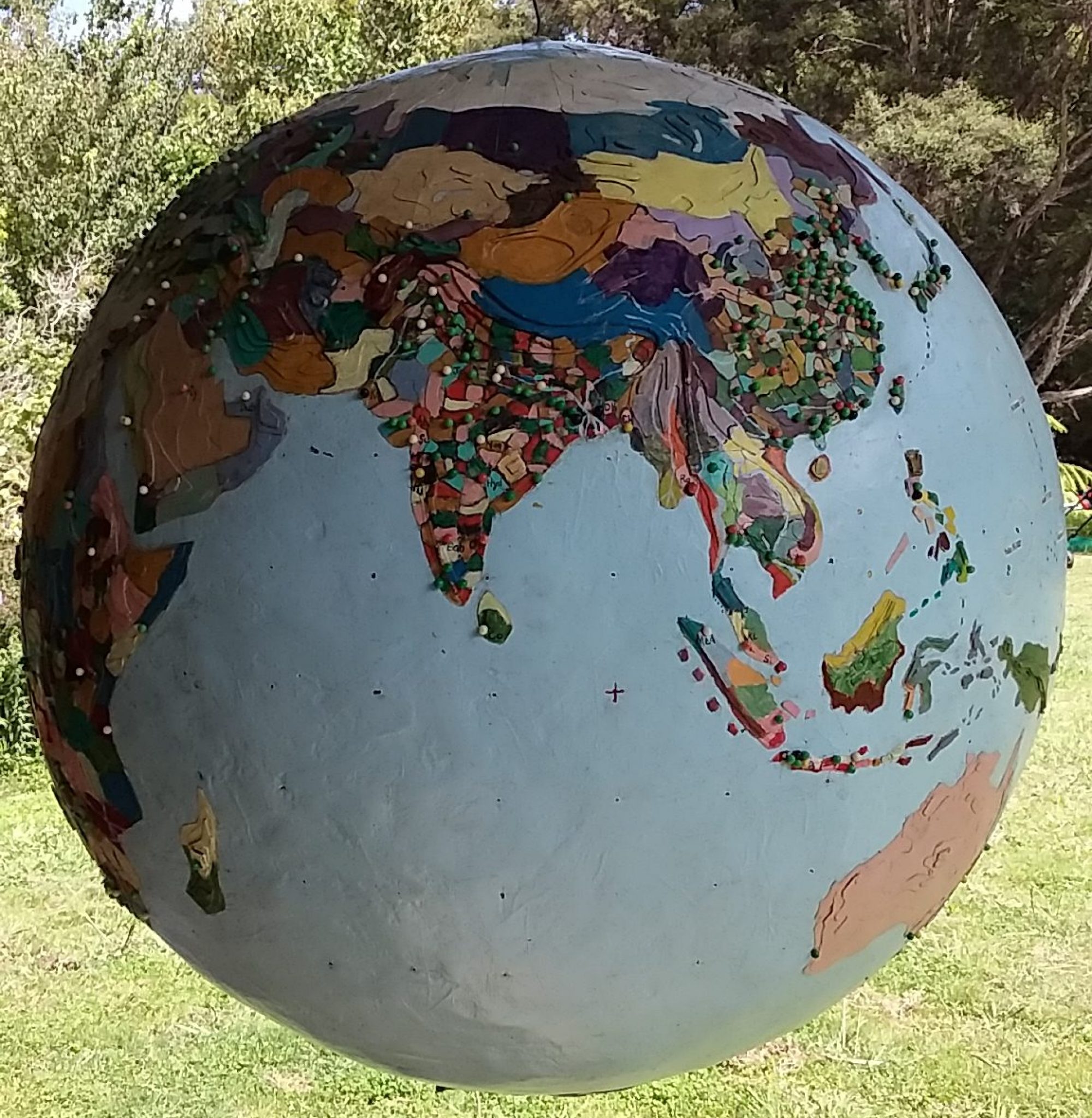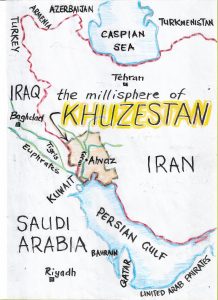The millisphere of Khuzestan appeared briefly in the news when, in September 2018, five Arab gunmen, disguised in Iranian Islamic Revolutionary Guard uniforms, opened fire on a Revolutionary Guard parade commemorating the day the Iran/Iraq war started.
The Shi’a Revolutionary Guard blamed Arab Sunni militants from Syria for the shooting in Ahvaz (pop 1.3 million) one of Iran’s most oil-rich cities. In 2015 the WHO (World Health Organisation) named Ahvaz “the most polluted city in the world”.
The Iran/Iraq war started in 1980 when, with US help, Saddam Hussein’s Iraqi forces invaded Iran’s southwest province of Khuzestan (population 4.7 million) and occupied Iran’s oil fields. During the war, despite an American arms embargo, Israel covertly supplied Iran with arms in exchange for oil.
Iran (population 82 million) has the world’s fourth largest oil reserves. In quality terms, Iranian crude is second only to Saudi Arabian, and Khuzestan produces 85 percent of all Iran’s oil.
Khuzestan has the Iranian portion of the once extensive Mesopotamian Marshes, the original ecosystem of the Euphrates and Tigris river deltas, and it is the home to Iran’s Arab minority. Khuzestan, sometimes referred to as Arabistan, was virtually autonomous from 1880 to 1920 and after the 1979 Iranian Revolution the Marsh Arabs unsuccessfully sought autonomy for their province again. The occupation of Iran’s London embassy in 1980 was by Arab separatists from Khuzestan.
American relations with Iran deteriorated after November 1979, when fundamentalist Iranian students occupied the United States embassy in Tehran, detaining the diplomatic staff there for 444 days.
The American CIA had failed to recognise the discontent that would sweep away the Shah in 1979, nor the deep distrust in Iran of the US and the UK. Iranians remembered when the 1953 “Operation Ajax” coup, organised by the CIA and MI5, deposed the Mossadeq government, which had offended Western oil companies in 1951 by nationalising their oil industry.
The geopolitics of oil and its attendant wars have embroiled Khuzestan regularly during the twentieth century. In 1941 the UK occupied Ahvaz to cut oil supplies to Nazi Germany and in 1988 the US shelled two Iranian oil platforms in the Persian Gulf. When Saddam Hussein’s forces pulled out in 1988 they left Iran’s largest refinery in flames, palm groves annihilated, cities destroyed and historic sites demolished. When Saddam Hussein’s amy torched the oil fields in Kuwait, the soot fell on Khuzestan.
In the marshes a combination of water, soil and heat once sustained a rich, diverse ecosystem. Wild wheat and pulses were easily domesticated and agricultural civilization blossomed here. In the Mesopotamian imagination this was The Garden of Eden. Iran refers to the city of Ahvaz as the “birthplace of the nation”, dated at about 3000 BC.
Ahvaz sits on the Karun River, which is navigable to the Persian Gulf.The Karun River flow has been reduced to less than a half of what it was in 1970 and dams divert water to neighbouring provinces. The marshes have also been drained for agribusiness – mainly sugar cane – which is water hungry. The palms that once produced the best dates in the Middle east are dying from ‘saline penetration’ and polluted rivers. Khuzestan has turned from a “wetland into a wasteland”, and now has drought, dust storms, unemployment and air pollution. “Khuzestan has dried up,” said one farmer.
In 2006-7 the US, the EU and finally the UN applied sanctions, demanding that Iran halt its development of nuclear arms, but the Chinese, during the Ahmadinejad years (2005-14), continued doing business with Iran, providing inferior, rough and dirty, oil refining technology.
Iran refers to the US and Israel (who both have nuclear weapons) as “big Satan and little Satan”, and in May 2018 Donald Trump, at the behest of Benjamin Netanyahu, imposed sanctions on Iran once again – before leaving office Barack Obama had lifted sanctions on Iran, seamingly assured that Iran had given up its nuclear ambitions.
Since Donald Trump’s Iran sanctions petrol prices have risen steeply at New Zealand service stations, Saudi Arabia’s economy is prospering again and Mohammed bin Salman can afford to pay for his American weaponry.

